Tim Noakes – the pioneering scientist who told us to
carbo-load – has pushed away pasta and learnt to favour fats. Here he tells us
why you should, too.
To lose weight – and be healthy – we must suffer a little.
We must cut calories, exercise harder, up our fruit, veg and whole-grain
intake, eat only the leanest proteins, and wave goodbye to all fats –
especially saturated ones. This is what we believe – what we know! But, says
Professor Tim Noakes, Discovery Health Chair of Exercise and Sports Scientist
at the University of Cape Town, none of these ‘accepted ideas about weight loss
incorrect’, and ‘what we believe may have nothing to do with the truth’.
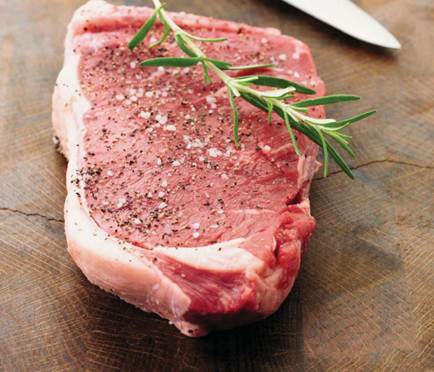
‘Fat doesn’t make
you fat’
Not that he’s pointing any fingers – until last year Noakes
himself, with 42 years of medical and scientific experience under his belt,
believed it too. ‘I would sit down every morning with my glass of orange juice,
bowl of muesli and low-fat yoghurt, and think that I was giving myself the best
start to the day. I’d written a book (Lore of Running) telling athletes that
carbohydrates should be the basis of their diets. But that’s completely the
opposite of what many of us should be doing. Those who are like me should be
eating a diet of 90% protein and fat, with small amounts of carbohydrates in
the form of vegetables and dairy.’
So what prompted the shift – and led Noakes to say ‘sorry
everyone’ in the revised copy of his book Challenging Beliefs? ‘It was the
discovery that what we have been told about sugar [carbs] and saturated fats
has been a con.’
After receiving
an email promising weight loss without hunger (two concepts he’d always thought
were joined at the hip), he was about to press the delete button when he
saw that the latter was promoting a book written by three respected scientists
whose work he admired.
‘After reading the book I immediately adopted the
high-protein/ high-fat/ low-carbohydrate diet the authors advocated.’ Since
then, he says, ‘I have learnt more about nutrition on one year than I did in
the previous 42 years of my medical and scientific training.’ Primarily: fat
doesn’t make us fat, nor does it cause heart disease or increase blood
cholesterol levels; protein is a potent appetite suppressant; and carbohydrates
are responsible for obesity and adult-onset diabetes.
Carbs are out, protein is in
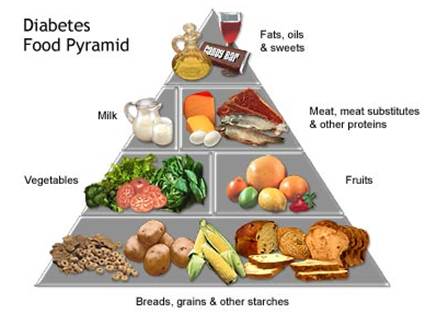
What was previously called the ‘alternative hypothesis’ –
alternative to the low-fat, high-carb diet approved by government health
agencies around the world and taught to children in the form of the famous food
pyramid – is slowly being adopted by researchers, says
scientist-turned-journalist and author of Good Calories, Bad Calories and Why
We Get Fat and What to do About it, Gary Taubes. Taubes – who Noakes believes
should win the Nobel Prize for medicine for his investigations – has reviewed
over a century’s worth of research and says that the scientific basis for the
validity of a carbohydrate-restricted diet lies in ‘Endocrinology 101’.
In layman’s terms, this means people who are carbohydrate
resistant (almost every food contains carbohydrates to a lesser or greater
degree) are able to use fat as fuel, but respond to ingesting carbohydrates by
over-secreting insulin, leaving them in a constant state of elevated blood
glucose concentration. At the same time, insulin in carbohydrate-resistant
people drives this blood glucose into fat cells, where it is stored as fat,
while simultaneously preventing the release of fat stores from these cells. The
result? Obesity, and potentially Type 2 diabetes – a disease for which Noakes
recommends a high-fat/ high-protein diet as a preventative cure.
But why are so many of us carbohydrate resistant? ‘Probably
because [carbohydrates are] new to our diet and we haven’t had time to adapt,’
says Taubes. While many believe we’ve evolved from the meat-and-fat diet of our
palaeo forefathers, we haven’t, says Noakes.
‘Our human ancestors started consuming a meat-and-fat-heavy
diet two to three million years ago, while Chinese and Indian populations were
only introduced to cereals 20000 years ago, and Europeans 5000 years ago.
Humans probably need hundreds of thousands of years to evolve and adapt to a
new diet, so we’re definitely not there yet.’
How is this different from the Atkins diet?
‘It’s not,’ says Noakes – but unfortunately for the Atkins
diet, which he says outperforms any low-carbohydrate, calorie-restricted diet,
the books were launched at the height of the ‘fat will kill you’ campaign,
which is why its principles have been ridiculed in the media.
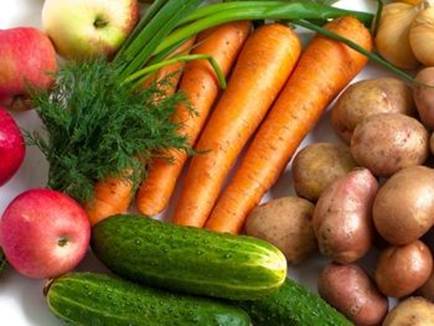
atkins diet
plan could be perfect for you but unfortunately
The basis for this way of eating has actually been around
since the 1800s, when an English undertaker named William Banting and an ear,
nose, and throat surgeon named William Harvey hit in this formula – Banting
lost 19 kilograms between 1862 and 1863 following the high-protein diet, and
declared that the carbohydrates which had been the ‘main (and I thought
innocent) elements of my existence’ were the problem: ‘these, said my excellent
adviser [Harvey], contain starch and saccharine, tending to create fat and
should be avoided altogether.’
After adopting the diet, Banting lived to 81, and subsequent
to Harvey’s advice this diet was taught in medical schools around the world
until 1959.
Is there a carb conspiracy?
Why then, if a high-protein/ high-fat diet was advocated for
so long, have we been told to avoid eating this way? Taubes, Noakes and Dr.
Mary Enig – acclaimed biochemist and author – offer two theories. At best,
scientific data has been misinterpreted, entrenching the belief that excessive
consumption of fats leads to heart disease. This belief is so widely held that
it is used by the medical community and US government as the basis of the food
pyramid and federal warnings against eating saturated fat. At worse, it is
because of the relationship between dietetics/ nutrition associations, sugar
manufacturers and producers of food and drinks heavily reliant on sugar. For
example, says Noakes, the American Dietetic Association is funded by, among
others, Caca-Cola, Pepsico and Kellogg’s; the British Nutrition Society accepts
funding from Coca-Cola and Nestle UK; and the British Dietetic Association is
also funded by Kellogg’s. ‘If it sounds like a conspiracy theory, that’s
because it is,’ says Noakes. ‘It’s a mix of inaccurate data from the 1960s, the
might of the sugar and grain lobbyists, and the fact that many people stand to
lose their jobs if we stop eating sugar and refined carbohydrates.’
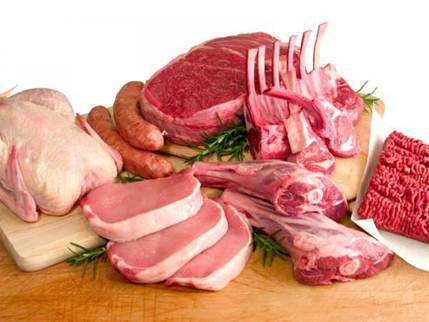
Why then, if a
high-protein/ high-fat diet was advocated for so long, have we been told to
avoid eating this way?
‘the only effective way to reverse the modern epidemic of
obesity and diabetes, and probably a range of other conditions including heart
disease and Alzheimer’s, would be to limit the sale of products produced by a
large number of influential food and beverage manufacturers,’ says Taubes.
Is it for everyone?
No, it’s not, says Noakes – it’s only for those he describes
as ‘carbohydrate resistant’ (which is most likely well over half the population).
‘If you’re lean, and have always been so, regardless of your
carb intake, then you’re likely not CR, so you can carry on eating
carbohydrates,’ says Noakes. Taubes says research seems to suggest a genetic
origin for this: ‘The genes responsible for obesity or a predisposition to gain
weight seem also to be the genes that determine how we respond to carbohydrates
in our diet – how much insulin we secrete in response, how sensitive our lean
and fat tissue is to that insulin… so some of us can eat a carb-rich meal and
easily burn off all those calories. These are the ones who remain lean
effortlessly.’
If ‘effortlessly lean’ doesn’t describe you, three simple
blood tests, which you can have done at any pathology lab or GP’s room, will
confirm whether you’re carbohydrate resistant: HbA1C levels, fasting glucose,
and fasting insulin. If these are elevated, you’re carbohydrate resistant, in
which case Noakes recommends reducing the amount of carbs in your diet.
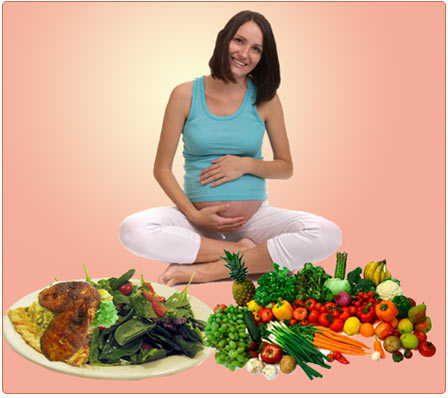
And what about
pregnant women?
‘I don’t recommend that people follow it as strictly as I do
– I am in a sense “experimenting” on myself since I have very severe CR,’ says
Noakes, who eats eggs and fish for breakfast, snacks and lunches on biltong,
nuts and cheese, and has fish with very leafy vegetables and berries for
dinner. What he does recommend is following a similar diet to his, just with
more vegetables and diary (see box, above, foe a guide). And what about
pregnant women? ‘I have no reason to believe that this is harmful to either
pregnant women or their babies. In fact, it’s restricting fat that’s
detrimental to the baby. You’re getting all the key nutrients from this diet
that you’d be getting from cereals and grains, so you’re not lacking anything.’
So is this the final word on dieting, then?
Many people have the same question: ‘If we’re always being
told something new, how do we know that, in 10 years’ time, we won’t be told
“proteins are poison”?’ And Noakes admits that this is a valid concern. But, he
says, the crux here is that this information isn’t new, it is just being kept
hidden by ‘very large industries’ who stand to lose billions of dollars if
people stop thinking of fat as the enemy, spurn sugar, and prevent the onset of
diabetes through diet rather than medication.
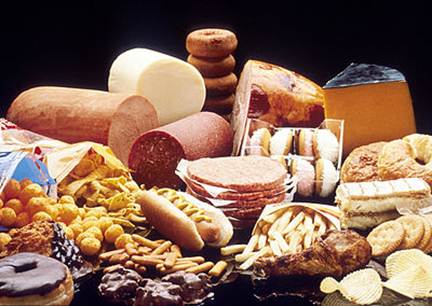
So is this the
final word on dieting, then?
‘I believe that the tipping point is coming, and sugar must
ultimately be viewed in the same way cigarettes are.’ Taubes, interestingly,
uses a similar analogy: ‘in a world without cigarettes, lung cancer would be a
rare disease, as it once was, in a world without carbohydrate-rich diets,
obesity would be a rare condition as well.’